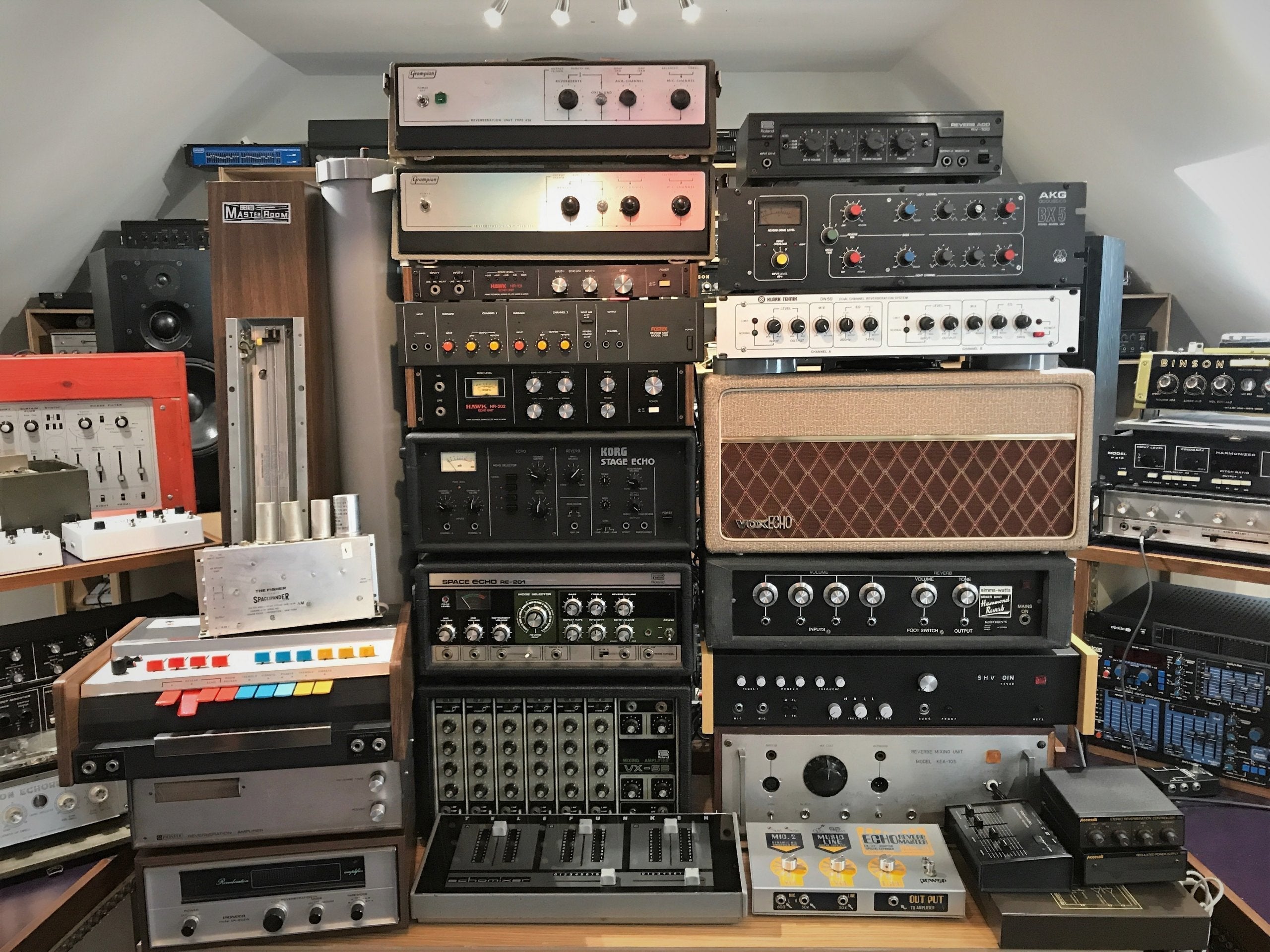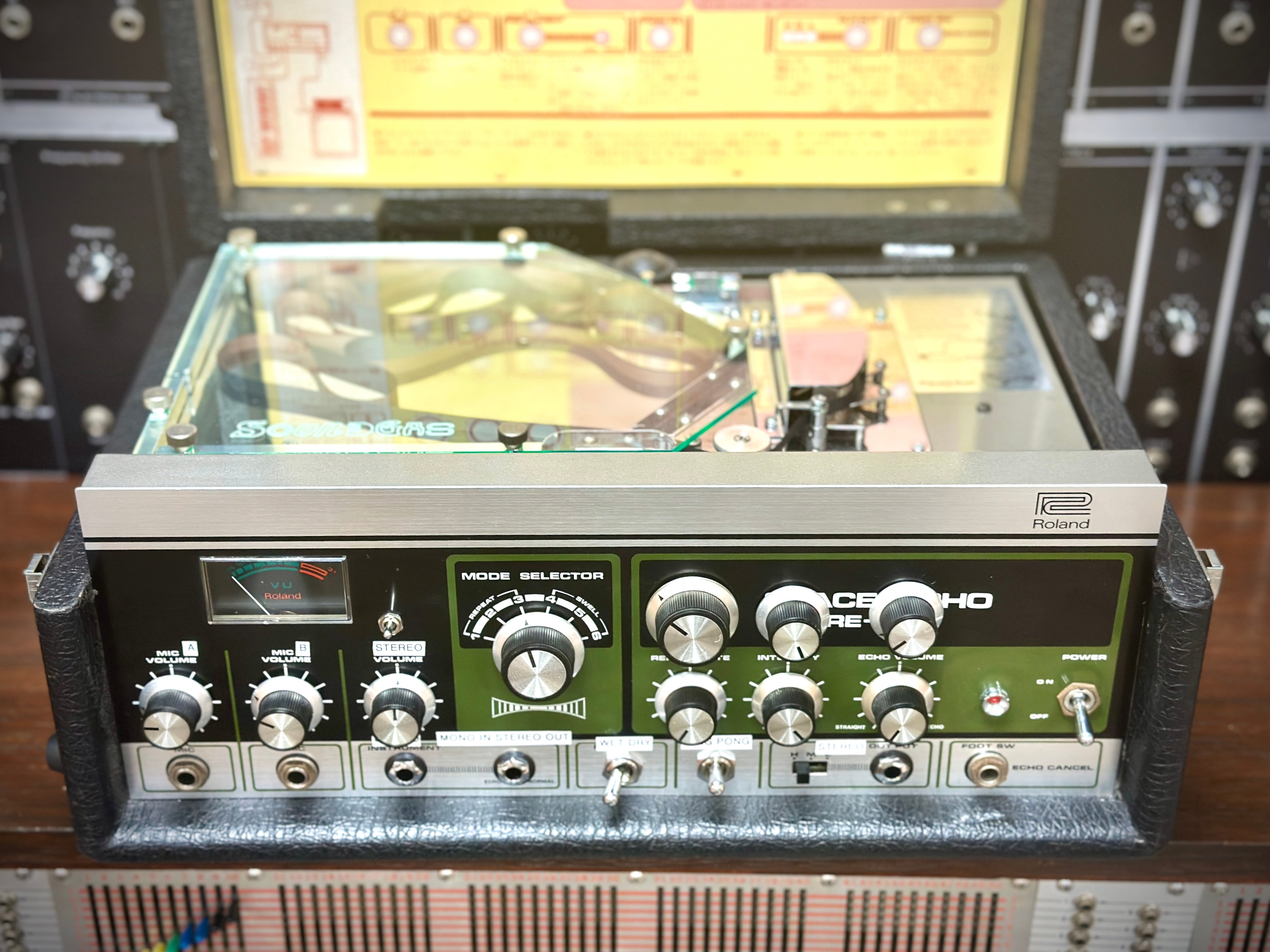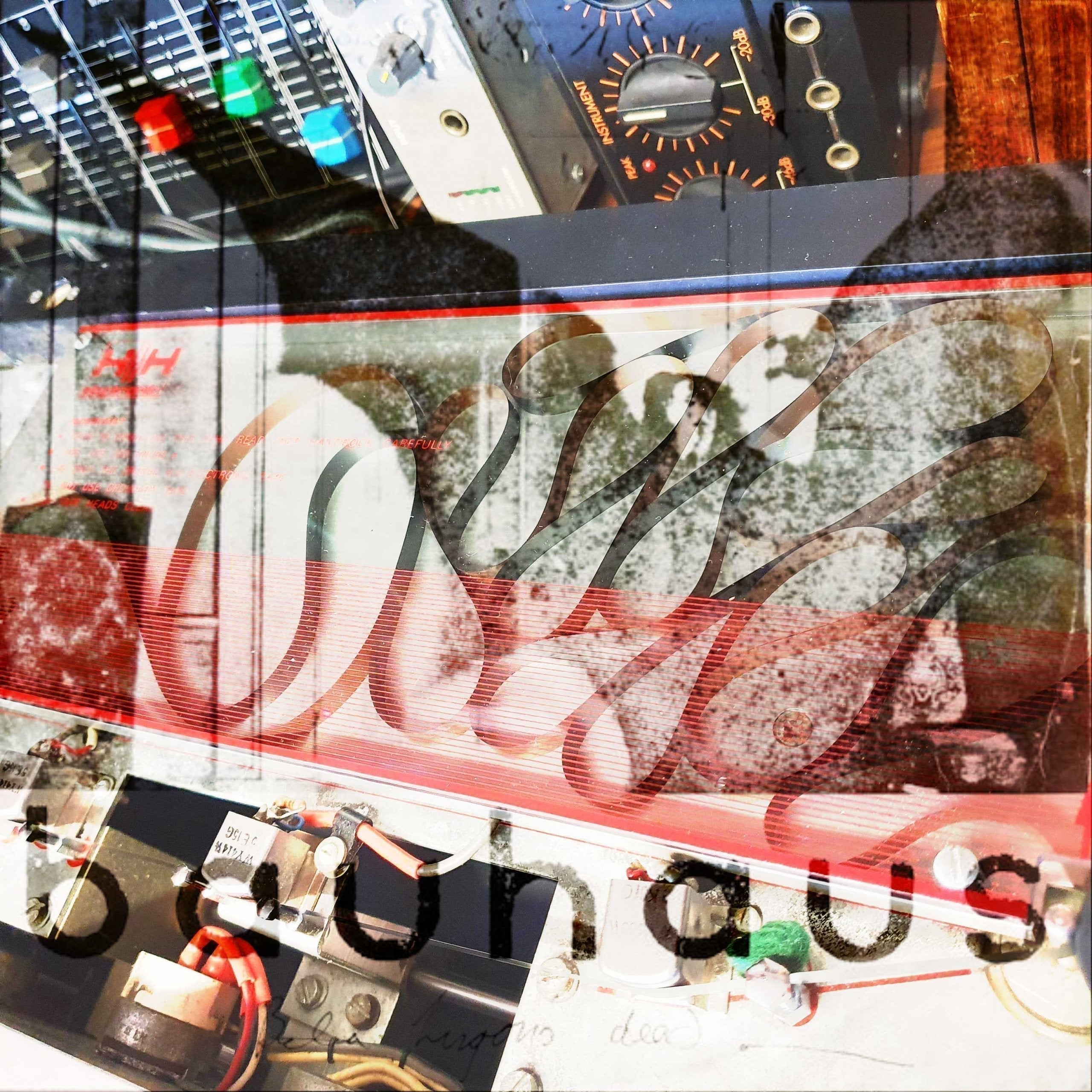
Daphne Oram's 'Still Point' - BBC Proms 2018
 We were asked to supply six Roland RE-201 Space Echoes for the first full performance of Daphne Oram's "Still Point" as part of the BBC Proms' Pioneers of Sound at the Royal Albert Hall.
To describe Daphne Oram's Still Point as groundbreaking is akin to suggesting the Beatles sold the odd record. Composed for double orchestra, turntable manipulation and echo chambers with additional filtering - in 1948, when Oram was only 23. It predates the rise of the DJ as instrumentalist by three decades or more and is thought to be the first ever composition to feature real time electronic transformation of instrumental sounds.
We were asked to supply six Roland RE-201 Space Echoes for the first full performance of Daphne Oram's "Still Point" as part of the BBC Proms' Pioneers of Sound at the Royal Albert Hall.
To describe Daphne Oram's Still Point as groundbreaking is akin to suggesting the Beatles sold the odd record. Composed for double orchestra, turntable manipulation and echo chambers with additional filtering - in 1948, when Oram was only 23. It predates the rise of the DJ as instrumentalist by three decades or more and is thought to be the first ever composition to feature real time electronic transformation of instrumental sounds.

 IMPORTANT NOTE: You can listen to the entire Pioneers of Sound concert right now on the BBC iPlayer (if you are in the UK) - but this link will only work until mid-August!
IMPORTANT NOTE: You can listen to the entire Pioneers of Sound concert right now on the BBC iPlayer (if you are in the UK) - but this link will only work until mid-August!

 Still Point was inspired by Oram's wartime experiences as a BBC engineer at the Royal Albert Hall. She was tasked with balancing live recordings while keeping 78rpm discs cued up to continue the broadcast; in the event of an evacuation due to an air raid, the music would play on.
Oram submitted the piece to the BBC as a potential entry for the inaugural Prix Italia (for modern composition) in 1950, but they turned it down due to staid concerns that the instructions for ‘acoustic variants and pre-recording techniques’ were at odds with a traditional orchestral score. Thereafter she abandoned composing before co-founding the BBC Radiophonic Workshop in 1958. The piece was never performed and was thought to be lost until elements of the score came to light a few years ago.
Still Point was inspired by Oram's wartime experiences as a BBC engineer at the Royal Albert Hall. She was tasked with balancing live recordings while keeping 78rpm discs cued up to continue the broadcast; in the event of an evacuation due to an air raid, the music would play on.
Oram submitted the piece to the BBC as a potential entry for the inaugural Prix Italia (for modern composition) in 1950, but they turned it down due to staid concerns that the instructions for ‘acoustic variants and pre-recording techniques’ were at odds with a traditional orchestral score. Thereafter she abandoned composing before co-founding the BBC Radiophonic Workshop in 1958. The piece was never performed and was thought to be lost until elements of the score came to light a few years ago.

 Oram's archivist, James Bulley, asked us to supply six Roland RE-201 Space Echoes for the first full performance of the piece last night as part of the BBC Proms' Pioneers of Sound at the Royal Albert Hall.
Our techs, 'Dr Huw' Williams and Max Dawson worked tirelessly to get the machines prepared in a very short space of time. We fitted custom clear tape tray covers (courtesy of our resident can-do tech, Chris Challoner) in place of the standard darkened perspex ones to enhance their televisual appeal. All agreed they were a great success; the mesmerising sight of undulating tape loops coiling and writhing was a fitting accompaniment to Oram's score.
Turntablist Shiva Feshareki manipulated pre-recorded 78rpm lacquers according to Oram's original directions, coaxing sublime dub-style self-oscillating repeats from the Space Echo by her decks. James Bulley had no less than five machines treating the 'wet' section of the London Contemporary Orchestra with gentle washes of reverberant echo. The blending of live orchestra, echoes and reversed 78s sounded incredible.
While I'm a big fan of crackle, hiss and texture, and understand the desire to adhere closely to the original directions for authenticity, I felt at times that the level of surface noise from the 78rpm lacquers to be a little intrusive. On listening after the event however, I find the noise from the lacquers entirely appropriate, but I would love to hear this piece performed with vinyl to further blur the lines between live and recorded/manipulated instrumentation. Indeed, it seems to me that this historic and important piece richly-deserves to be recorded and released on vinyl (how about it BBC?).
Oram's archivist, James Bulley, asked us to supply six Roland RE-201 Space Echoes for the first full performance of the piece last night as part of the BBC Proms' Pioneers of Sound at the Royal Albert Hall.
Our techs, 'Dr Huw' Williams and Max Dawson worked tirelessly to get the machines prepared in a very short space of time. We fitted custom clear tape tray covers (courtesy of our resident can-do tech, Chris Challoner) in place of the standard darkened perspex ones to enhance their televisual appeal. All agreed they were a great success; the mesmerising sight of undulating tape loops coiling and writhing was a fitting accompaniment to Oram's score.
Turntablist Shiva Feshareki manipulated pre-recorded 78rpm lacquers according to Oram's original directions, coaxing sublime dub-style self-oscillating repeats from the Space Echo by her decks. James Bulley had no less than five machines treating the 'wet' section of the London Contemporary Orchestra with gentle washes of reverberant echo. The blending of live orchestra, echoes and reversed 78s sounded incredible.
While I'm a big fan of crackle, hiss and texture, and understand the desire to adhere closely to the original directions for authenticity, I felt at times that the level of surface noise from the 78rpm lacquers to be a little intrusive. On listening after the event however, I find the noise from the lacquers entirely appropriate, but I would love to hear this piece performed with vinyl to further blur the lines between live and recorded/manipulated instrumentation. Indeed, it seems to me that this historic and important piece richly-deserves to be recorded and released on vinyl (how about it BBC?).

 The performance was a joy from start to finish, and this self-confessed tape delay nerd was in complete echo nirvana. The sight and sound of our machines taking part in a historic performance in that hallowed hall, where once the sound of falling shrapnel on the glass roof inspired a young composer, raised hairs on the back of my neck more than once.
It was a great honour and very moving to play a small part in the culmination of Daphne Oram's visionary composition, and to witness firsthand the piece finally being performed in its entirety seventy years after its nascence. The evening was a triumph and our thanks go out to all the performers, techs, staff and producers for creating such a memorable event.
The performance was a joy from start to finish, and this self-confessed tape delay nerd was in complete echo nirvana. The sight and sound of our machines taking part in a historic performance in that hallowed hall, where once the sound of falling shrapnel on the glass roof inspired a young composer, raised hairs on the back of my neck more than once.
It was a great honour and very moving to play a small part in the culmination of Daphne Oram's visionary composition, and to witness firsthand the piece finally being performed in its entirety seventy years after its nascence. The evening was a triumph and our thanks go out to all the performers, techs, staff and producers for creating such a memorable event.
More from the BBC website about Pioneers Of Sound Listen again to the full broadcast on BBC iPlayer Read more about 'Still Point', and about the 2016 version of the piece re-imagined from parts of the score found up to that point, on Jame's Bulley's website. Photos by Tony Miln and Greg White ========== Tony Miln is the co-founder (& Head Gear Head) of Soundgas. See/hear him in action on Instagram.
Tags:
Previous post
Machines With Soul
Next post







